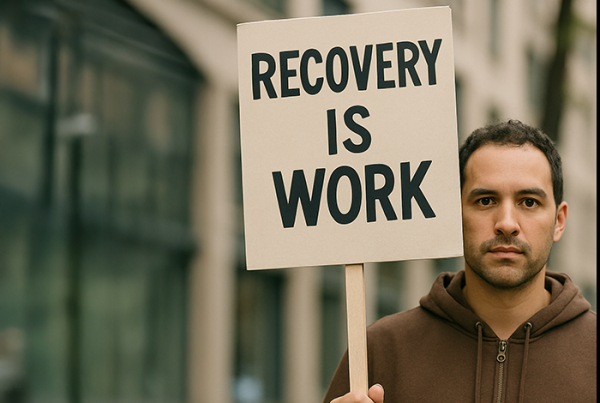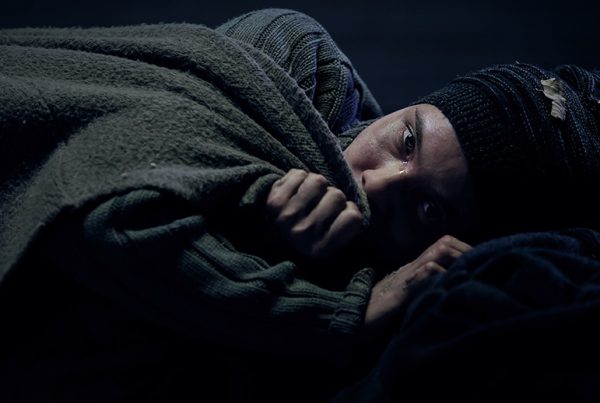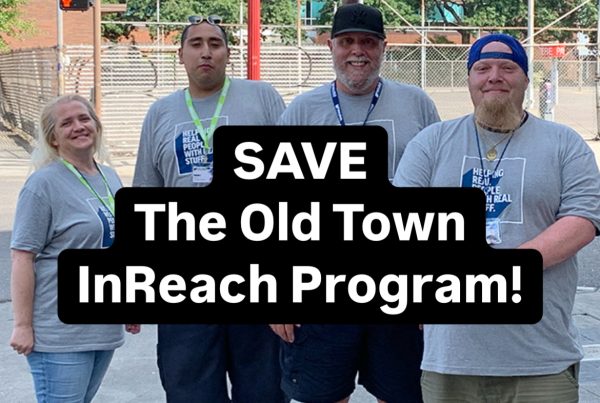Our Residential Program Has Evolved to Serve Diverse Needs of People Experiencing Homelessness
Hassan and David met in Blanchet House’s residential program and have grown to be good friends and supporters of each other. You can hear them laughing and joking in the hall, which lightens the mood and lifts spirits.
Though they come from very different backgrounds, they share the need for a safe refuge to pursue opportunities that will improve their life’s direction.
Hassan had a difficult childhood spent in a Kenyan refugee camp with his family after they were displaced by war. He’s now enrolled in college and works hard, giving back in the kitchen. David came to Blanchet seeking to build sobriety with a supportive community. He’s now working full-time for Clean & Safe, a city janitorial program.
Both men have accomplished so much in a short time and are inspiring others in the residential program.
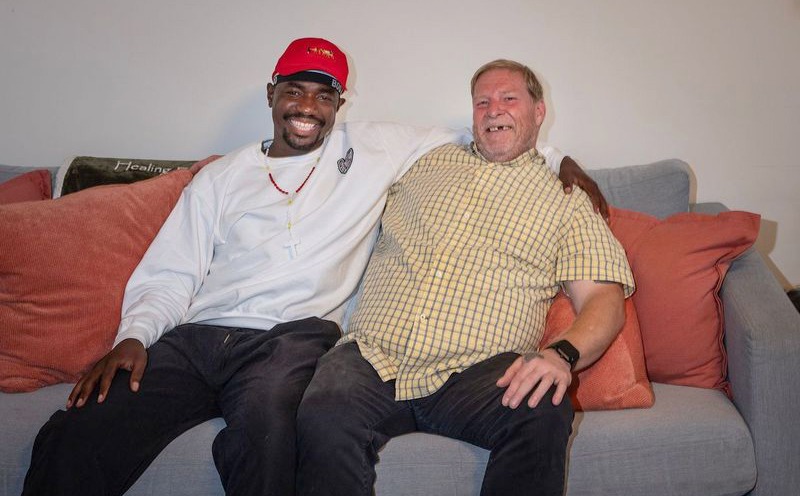
Hassan (left) and David (right) became good friends after meeting each other as roommates in Blanchet House’s residential program.
Evolving to Help More
Over the years, our program has adapted by offering shelter to people who are not only struggling with addiction but have other barriers to housing and employment.
“Lately I’m getting calls from men looking for a place to stay because they’re homeless due to mental health issues, lost their job and need help applying for disability, finished detox, or are staying in a sleeping bag in a relative’s garage. It happens all the time,” says Kristi Katzke, Intake Coordinator for Blanchet House. “The friends or family won’t let him sleep indoors but he can sleep in the garage or backyard.”
Our program is often at capacity, which means we are housing up to 50 men at a time. Because people are in a state of transition, beds in the house can open up without our planning. Kristi then contacts someone on the waitlist and welcomes them in. It’s a special day for a person when they are shown their room, given clean sheets and clothes, and then invited to eat a great meal in the café. After a chance to settle in, shower, and sleep, they start the next day working in the kitchen.
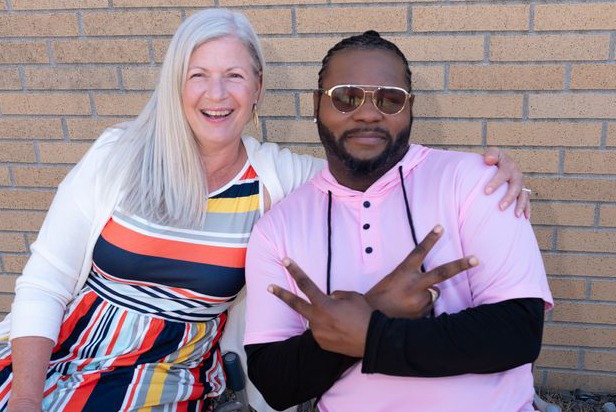
Case Manager Kristi Katzke with Steel, a resident of Blanchet House.
Who’s Staying at Blanchet House?
We are now providing temporary housing to men who are:
Employed but Houseless
This includes men who are employed full-time but have recently lost housing and need a bed. There is a great need for this type of housing, so we created a few “working beds.”
Residents staying in a working bed are not required to serve in the kitchen so they can keep their jobs outside of Blanchet House. These beds are critical to keeping employed people from falling into homelessness and spiraling further away from housing.
Refugee or Marginalized
There are asylum seekers from other countries who have nowhere to live once they arrive, and as single men, their options are limited. Many have had their lives threatened because of their sexual identity or ethnicity.
Recuperating
Some of our residents have lost their employment and housing after suffering a medical crisis like cancer, a stroke, an accident, or chronic disease. They need a temporary place to recuperate which is not easy to find if you don’t have family or savings.
Impoverished Senior Citizen
More older Americans are finding it difficult to hold on to housing while living on social security or a limited income. It takes time to find a new place to live and Blanchet House offers a place of transition.
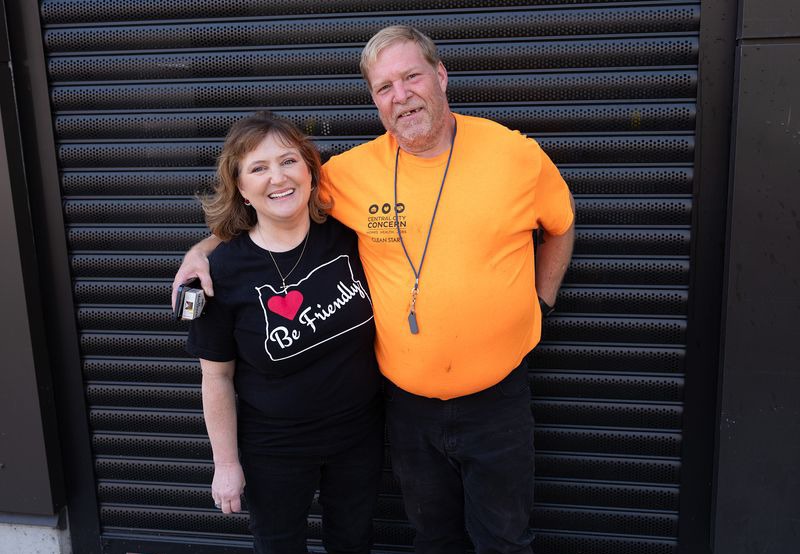
Housing manager Jennifer Coon with David, a resident of Blanchet House.
One Thing in Common
Something that everyone who stays with us is experiencing is a lack of access to suitable affordable housing. It can take months and even years to secure an affordable place on a small income, social security, or disability.
Your donation can end and prevent someone’s homelessness by providing them with a bed at Blanchet House. Thank you for caring for our residents.














